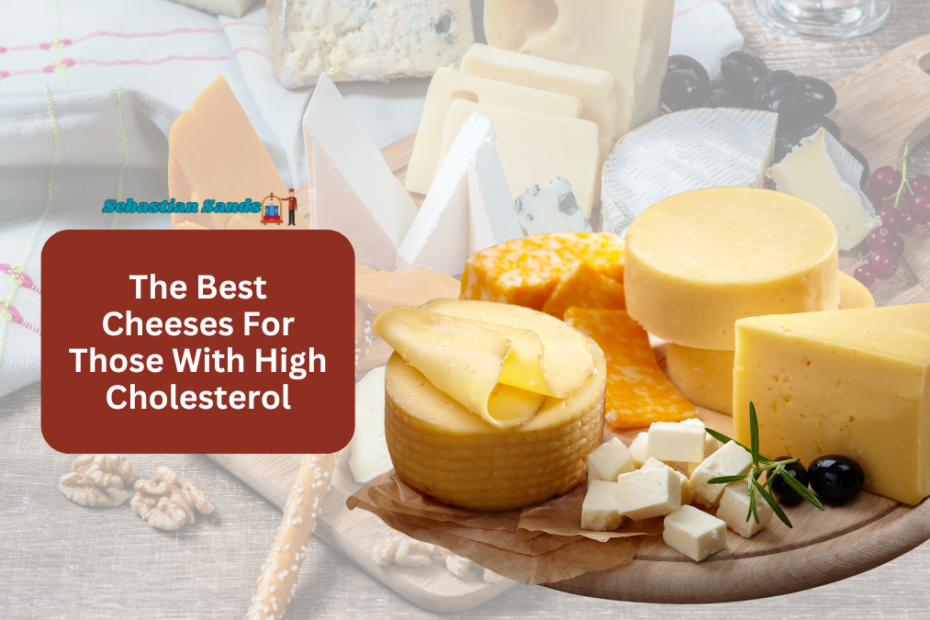Receiving a high cholesterol diagnosis can be a wake-up call, prompting you to rethink your dietary choices. Cheese, in particular, often comes under scrutiny for its high-fat content. But the good news is that you don’t have to eliminate cheese from your diet entirely if you have high cholesterol.
Instead, choosing the suitable types of cheese can help you manage your cholesterol levels while still enjoying your favorite flavors.
Understanding Cholesterol And Saturated Fat
It’s a common misconception that foods high in cholesterol automatically raise blood cholesterol levels. According to the American Heart Association, saturated fat not dietary cholesterol increases LDL (“bad”) cholesterol. Saturated fats are found in many foods, including some cheeses, and can contribute to higher cholesterol if consumed excessively.
You must focus on reducing saturated fat intake if you have high cholesterol. Cheeses like full-fat cheddar, Colby, and goat cheese contain some of the highest amounts of saturated fat per ounce. However, plenty of healthier alternatives that are lower in saturated fat and cholesterol are available.
Read More : The Most Legendary Sandwiches In The United States
Best Cheese Options For High Cholesterol
Selecting low-fat or fat-free cheeses can be smart if you’re managing high cholesterol. Here are some of the best options:
- Fat-Free Mozzarella: Fat-free mozzarella is low in saturated fat and lower in cholesterol than its full-fat counterpart. Fat-free mozzarella offers a nutritional boost with high calcium levels essential for bone and teeth health. Some fat-free cheeses contain nearly twice the calcium of their full-fat versions, making them an excellent option for those looking to support heart health.
- Swiss Cheese: Swiss cheese is another good choice if you’re looking to lower your saturated fat intake. With lower sodium levels than some other cheese varieties, Swiss offers a healthier option without sacrificing flavor.
- Low-Fat Cheddar: If cheddar is your favorite, opt for a low-fat version. Low-fat cheddar has only about 1.2 grams of saturated fat per ounce, making it a more heart-friendly option. However, it’s essential to monitor the sodium content, which can still be high in some varieties.
- Low-Fat Provolone: Another great option is low-fat provolone, which is relatively low in sodium (175 milligrams per ounce) but does have slightly more saturated fat than low-fat cheddar, with 3.2 grams per ounce. Despite this, it’s still a solid choice for those looking to manage their cholesterol while getting a good source of calcium.
The Role Of Calcium In Managing Cholesterol
Calcium is an essential nutrient to consider if you have high cholesterol. A 2011 Research published in the British Journal of Nutrition found that people with diets high in calcium had lower total cholesterol and LDL levels after just ten days. A high-calcium diet can also help improve the ratio of good (HDL) to bad (LDL) cholesterol, which is crucial for heart health.
The study defined a high-calcium diet as consuming around 2,800 milligrams of calcium daily. Many cheeses, especially low-fat varieties, are excellent sources of calcium and can help contribute to this daily intake.
Read More : What To Eat And Drink At Halloween Horror Nights 2023 At Universal Orlando Resort
How Much Saturated Fat And Sodium Is Too Much?
The National Institutes of Health recommends limiting your daily saturated fat intake to no more than 7% of your total calories to maintain heart health and manage cholesterol levels. For someone eating 2,000 calories daily, this translates to a maximum of 13 grams of saturated fat daily.
Additionally, keeping your sodium intake in check is vital for those with high cholesterol. Limiting sodium consumption to 2,300 milligrams a day is recommended, as high sodium levels can increase your risk of high blood pressure, another significant factor in heart disease.
Is Dairy Fat Really That Bad?
Reducing unhealthy fats is key for controlling cholesterol. New studies show that different dairy fats affect cholesterol in different ways.
A 2020 review in Advances in Nutrition found that consuming high-fat dairy products like cheese did not increase LDL cholesterol levels as much as previously thought. Cheese might not have the same negative impact on cholesterol as other sources of saturated fats, such as butter.
A 2021 Research in The American Journal of Clinical Nutrition also found that individuals with metabolic syndrome who consumed full-fat dairy products, including milk, yogurt, and cheese, saw no difference in their cholesterol levels compared to those who consumed low-fat or reduced dairy over 12 weeks.
The researchers concluded that while full-fat dairy contains saturated fats, it also provides beneficial nutrients like unsaturated fatty acids, including oleic acid and alpha-linolenic acids, which help counteract the harmful effects of saturated fats.
The Bottom Line
You can still eat cheese if you have high cholesterol. Just choose low-fat types like mozzarella, Swiss, or low-fat cheddar. These cheeses have less unhealthy fat and cholesterol. Eating cheese with calcium can be good for your heart health. You should still eat full-fat cheese in moderation and watch your saturated fat and salt intake.
